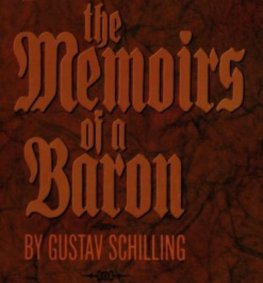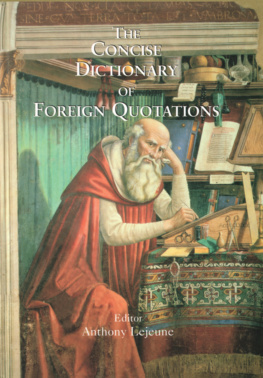M EMOIRS
OF
BARON LEJEUNE
AIDE-DE-CAMP TO MARSHALS BERTHIER,
DAVOUT, AND OUDINOT
TRANSLATED AND EDITED FROM THE ORIGINAL FRENCH
BY
MRS ARTHUR BELL (N. D'ANVERS)
AUTHOR OF THE ELEMENTARY HISTORY OF ART
THE SCIENCE LADDERS SERIES ETC.
WITH AN INTRODUCTION
BY
MAJOR-GENERAL MAURICE, C.S.
IN TWO VOLUMES-VOL. I.
This edition is published by PICKLE PARTNERS PUBLISHING
Text originally published in 1897 under the same title.
Pickle Partners Publishing 2011, all rights reserved. No part of this publication may be reproduced, stored in a retrieval system or transmitted by any means, electrical, mechanical or otherwise without the written permission of the copyright holder.
Publishers Note
Although in most cases we have retained the Authors original spelling and grammar to authentically reproduce the work of the Author and the original intent of such material, some additional notes and clarifications have been added for the modern readers benefit.
TRANSLATOR'S NOTE
THE translator of these Memoirs wishes to express her gratitude to Mr. HAROLD VALLINGS, the novelist, Colonel BRANSON, (retired), late Bengal Army, and Lieutenant-Colonel S. W. BELL, for their able help in the rendering of military terms. Thanks are also due to Lieutenant MAURICE for his various valuable suggestions on the proofs.
It has been thought well to retain the French title of the Major-General, so often used by Lejeune in speaking of Marshal Berthier, because, although the duties performed by that General were practically those of the Chief of the Staff, as he would be called at the present day, he is constantly referred to as the Major-General in Napier's Peninsular War and other histories of the campaigns in which he took so prominent a part.
NANCY BELL.
SOUTHBURNE-ON-SEA: December, 1896
Contents
TRANSLATOR'S NOTE
INTRODUCTION
THE spacious times of Napoleon left ample room for many varied orbits of personal experience. The man himself is still an unexhausted subject, and anything that throws light on his character and actions must have an intense interest, no matter who writes it. Volumes upon volumes which from one point of view or another thus contribute to the history of the times still pour from the press. The Memoirs of Lejeune, however, belong to a class quite distinct from these, and have a charm peculiar to themselves.
Though he was employed during the greater part of his career on the staff of Prince Berthier, Napoleon's right-hand man, and though he was therefore continually close to Napoleon, had many conversations with him, and was despatched by him personally on many missions of importance, it is not for the sake of any specially numerous or interesting anecdotes of the great man himself, or even for any very valuable additions to our general knowledge of the history of the times, that these volumes are to be commended to the attention of modern readers. The charm of them consists in this, that, cultivated, brilliant, and gallant soldier as Lejeune was, he was essentially, and always remained, an artist who had become a soldier rather than a soldier who had taken to art. Ruskin tells us that the business of the artist is to see, to think perhaps sometimes when he has nothing better to do. The saying has continually recurred to me as I have read these graphic descriptions of scenes in France, Italy, Spain, Switzerland, Germany, the Tyrol, Hungary, and Russia. From that point of view, I know nothing that approaches Lejeune's Memoirs. The faculty of seeing and of vividly portraying in words or by brush the thing seen is one of the most precious granted to man.
The instinctive artistic necessity which makes the eye take in all that is passing around at a time when every faculty is strained under the dire conditions of imminent personal peril, of absorption in the tremendous responsibilities involved in the command and care of men, in the stress of action, when every decision that is taken may involve the fate of an army, perhaps of a nation, is indeed a rare quality for a soldier to carry with him throughout such events as those through which an aide-de-camp on the staff of Napoleon passed during the years between Valmy and the retreat of the French army after the disaster of Leipzig. As a collection of historical anecdotes the Memoirs of Marbot are immeasurably more full and complete. Whether they are, properly speaking, memoirs at all and do not deserve rather to be classed among historical compilations for which the experiences and collections of other writers have, during the years of peaceful leisure which followed the great events they describe, been laid under heavy contribution, is a doubt which has assailed almost all who have read them.
As memoirs to serve for the history of Napoleon, many others are more valuable than Lejeune's. The recently published memoirs of De Menval, for instance, throw a light upon the workings of the mind around which events in Europe for at least thirteen years pivoted, such as cannot be compared with any fresh Napoleonic glimmerings that Lejeune here and there gives us. Lejeune's are throughout palpably what they pretend to be, pen-and-ink sketches made at the time of those scenes which most impressed him as an artist, sketches developed afterwards by the help of memory but with very little extraneous assistance and little comparing of notes with others. They have therefore at the same time the charm, the value, and the weakness of composition of this kind. There is no sort of proportion in the space given to different parts of the subject. The historical importance of events gives them no claim to full treatment by Lejeune. Austerlitz and Jena, - though Lejeune was present at each, are vaguely touched. No one could obtain an accurate understanding of the method of either battle or of the mode in which the skill of Napoleon was exercised in it from Lejeune's pages. Clearly Lejeune had something better to do than to think about the methods employed by his master in either case. For our purposes I think he had.
We have ample knowledge of what happened in both cases, and we know why it happened; but there is at least one famous dramatic scene at Austerlitz to which Lejeune has added some artistic touches, quite new to me, and so presented that it would be difficult ever to forget them again. The spontaneous illumination with which Napoleon was received by his soldiers when he visited their bivouac on the night before Austerlitz is a well-known historical incident. If, however, any one except Lejeune has recorded that the torches used consisted of the straw on which the men were lyingthat, in fact, in order to light Napoleon's way, they deprived themselves both of their beds and of the rough overhead shelters they had constructedit has altogether escaped my memory. Lejeune further tells us that this was not by any means intended as a mere demonstration, but was due to the anxiety of his soldiers lest the Emperor, who had come to visit them, should lose his way in the darkness. I shall not take the trouble to verify my memory as to the entire absence of any previous mention of these facts which give all the value to the soldiers' action as a demonstration of devotion to Napoleon, because, whether I am right or wrong, the quality of Lejeune's style in vividly presenting a scene to one and fixing it in one's memory is none the worse illustrated by the fact, if it be the fact, that others have casually mentioned this feature of the famous illumination.







